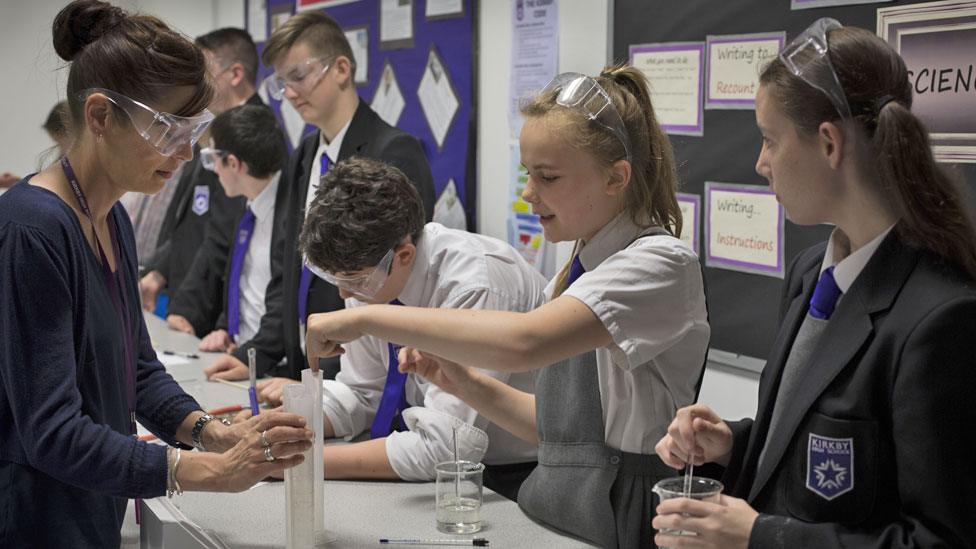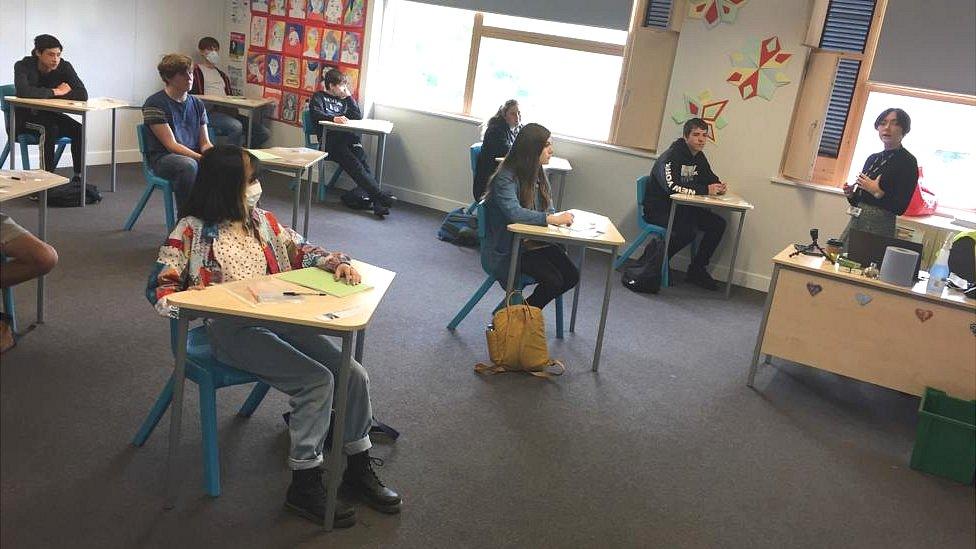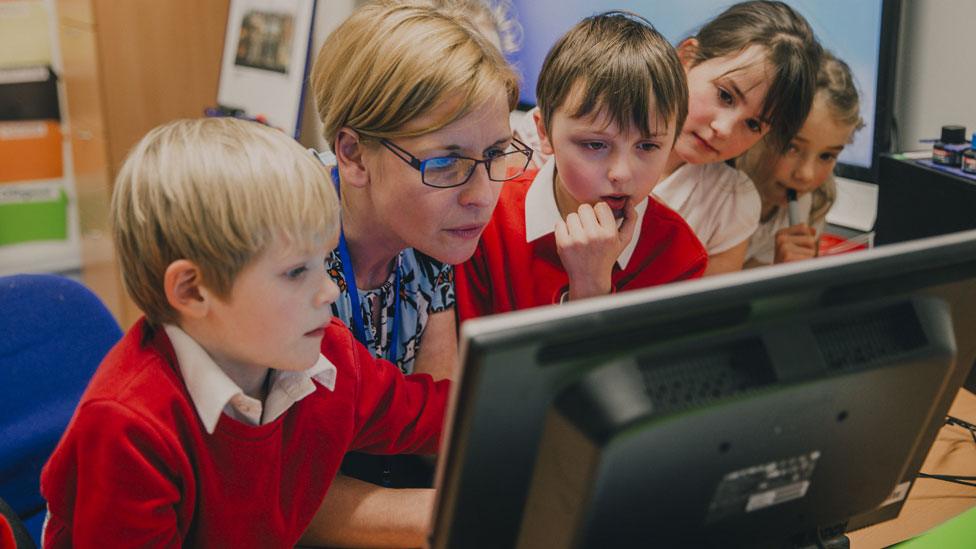School catch up: No such thing as a free launch
- Published

Parents will be waiting to find out if schools will have all pupils back in September
The billion pound school catch-up plan for England aims to drag the return-to-school policy out of a quagmire of indecision.
Parents have been increasingly baffled by how few pupils have returned to school this term, confused by what would be offered over the summer and downright horrified at the idea that schools might not even go back full-time in September.
A parent emailed the BBC this week to say she wanted to burst into tears when she got a letter from her school to say pupils were only likely to go back half-time in the autumn.
And head teachers' leader Geoff Barton said it was like operating in an "information black hole".
So has this juggernaut of cash put the show back on the road?
It's a lot of money - but it has to tackle massive disruption to almost nine million children in primary and secondary schools.
And every family will want to know what will be done for their children, with many expected to be out of school for almost six months.
First of all, there's no mention of extra summer activities. And nothing yet to explain how pupils might all go back in September.
The big focus is on private tutoring - and for schools, there is no such thing as a free launch.

Secondary schools are back, but pupils are only attending part time
The £350m for tutoring will fund discounts - it's not added to school budgets. So schools will have to spend their own money to take advantage of the subsidy.
It's still not entirely clear how much schools will have to pay - but at the most generous, the discount will be 75%. So, based on £50 per session, it would cost schools £12.50 per pupil per session.
But there is financial support for this, in a £650m one-off payment to schools, otherwise the tutoring scheme would have actually cost schools money.
Tutoring businesses and charities can apply to join the new tutoring service, with the criteria for selection not yet published.

How much tuition will the funding deliver?
The programme is scheduled to start in the "autumn", paid for by the Department for Education and with extra cash from the KPMG Foundation.
Luke Sibieta of the Institute for Fiscal Studies (IFS) says the funding represents a 1% increase in school budgets and will be worth, on average, about £80 per pupil per year.
To put the £650m in context, the annual pupil premium supplement to schools to help disadvantaged pupils is about £2.4bn per year.
Head teachers and many education researchers are supportive of the idea of providing one-to-one tuition to pupils - to give more pupils the type of help already accessed by many better-off families.
So how much tutoring will this buy?
If the total £650m was spent on tutoring, and schools accessed all of the £350m available in subsidies, the IFS says it would mean about £2,400 available per class of 30 for the year.
This could give one hour each week to about five pupils in a class of 30.
On average, there are about five pupils eligible for free school meals in each class - so it would provide a real opportunity for them to catch-up, not just on missed school, but also to narrow the wealth related gap in educational attainment.
Head teachers' leaders are supportive - and even with a nervous glance at the funding model, they're backing the idea of subsidised extra lessons.
There are schools already using their pupil premium money to buy private tutors and the Education Endowment Foundation (which test drives ideas for improving achievement) says there is evidence that such extra tuition works.
The Education Policy Institute is less impressed.
David Laws, chair of the think tank and a former education minister, said the new funding was "poorly targeted".
He disagrees with schools in affluent areas getting the same share as the poorest - and there's no requirement to spend the money on disadvantaged pupils.
But here's the big question: Is it really a summer catch-up programme at all?
It might be a positive example of "never let a crisis go to waste" - in that it's an opportunity to launch a national tutoring scheme that could make a big difference to those most in need of help.
But it's not the type of summer educational recovery programme that parents might have been expecting. And there's nothing for early years, sixth forms or further education.
It might give a few children extra lessons, but what about the rest of the class, including those worrying about exams next year, those who have had only patchy access to online lessons and, well, everybody else who has been out of school for so long?
Parents might already feel they've had contradictory messages over schools, with confusion over who was going back and uncertainty about what to expect from lessons at home.
And the catch-up plans might not stop them looking anxiously at the clock, ticking away to the autumn term.

A SIMPLE GUIDE: How do I protect myself?
AVOIDING CONTACT: The rules on self-isolation and exercise
HOPE AND LOSS: Your coronavirus stories
LOOK-UP TOOL: Check cases in your area
TESTING: Can I get tested for coronavirus?

